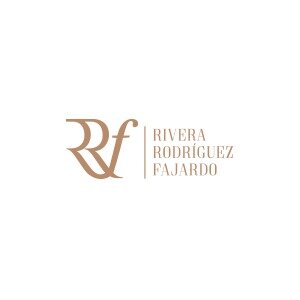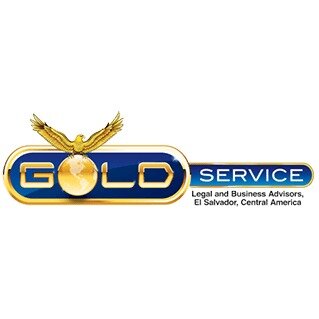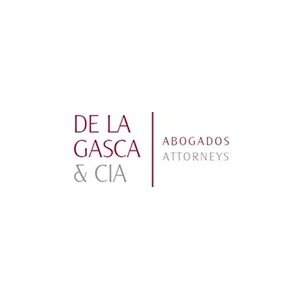Best Intellectual Property Lawyers in San Salvador
Share your needs with us, get contacted by law firms.
Free. Takes 2 min.
List of the best lawyers in San Salvador, El Salvador
About Intellectual Property Law in San Salvador, El Salvador
Intellectual Property (IP) law in San Salvador, El Salvador, covers a range of legal protections for creators and inventors. This includes patents for inventions, trademarks for brands and logos, copyrights for artistic works, and trade secrets for confidential information. IP law aims to protect the rights of individuals and companies to their creations and prevent unauthorized use by others.
Why You May Need a Lawyer
There are several situations where you may need a lawyer specializing in Intellectual Property law in San Salvador, El Salvador. Some common scenarios include: - Filing a patent or trademark application - Defending against allegations of IP infringement - Negotiating licensing agreements - Drafting contracts related to IP rights - Resolving disputes over ownership of IP assets
Local Laws Overview
In San Salvador, El Salvador, Intellectual Property rights are protected under the Intellectual Property Law (Law No. 97) and the Industrial Property Law (Law No. 353). These laws govern the registration, enforcement, and protection of IP rights in the country. IP rights are typically granted through registration with the General Directorate of Industry and Intellectual Property (DGII).
Frequently Asked Questions
1. What is the difference between a patent and a trademark?
A patent protects inventions, while a trademark protects brands or logos.
2. How long does IP protection last in San Salvador, El Salvador?
Patents are usually valid for 20 years, trademarks for 10 years (renewable), and copyrights for the life of the author plus 70 years.
3. Can I register my copyright internationally?
Yes, through mechanisms like the Bern Convention or the WIPO Copyright Treaty.
4. What should I do if someone infringes on my IP rights?
You should seek legal advice to enforce your rights through cease and desist letters, negotiations, or legal action.
5. Can I license my IP rights to others?
Yes, you can grant licenses to others to use your IP assets in exchange for royalties or fees.
6. How do I prove ownership of IP rights?
Registration with the DGII provides prima facie evidence of ownership in San Salvador, El Salvador.
7. What are trade secrets and how are they protected?
Trade secrets are confidential information that provide a competitive advantage. They are protected through non-disclosure agreements and other legal measures.
8. Can I transfer my IP rights to another party?
Yes, IP rights can be transferred through assignment or licensing agreements.
9. How can I avoid infringing on someone else's IP rights?
By conducting thorough searches and obtaining legal advice before using or registering IP assets.
10. What are the benefits of registering my IP rights?
Registration provides legal protection, evidence of ownership, and recourse in case of infringement.
Additional Resources
For more information on Intellectual Property in San Salvador, El Salvador, you can visit the General Directorate of Industry and Intellectual Property (DGII) website at www.dgii.gob.sv or consult with local IP law firms and attorneys specializing in IP matters.
Next Steps
If you require legal assistance with Intellectual Property matters in San Salvador, El Salvador, it is advisable to seek the counsel of a qualified IP lawyer who can guide you through the registration process, enforcement of rights, or resolution of disputes. Make sure to gather all relevant documentation and information before consulting with a lawyer to ensure a more effective representation of your interests.
Lawzana helps you find the best lawyers and law firms in San Salvador through a curated and pre-screened list of qualified legal professionals. Our platform offers rankings and detailed profiles of attorneys and law firms, allowing you to compare based on practice areas, including Intellectual Property, experience, and client feedback.
Each profile includes a description of the firm's areas of practice, client reviews, team members and partners, year of establishment, spoken languages, office locations, contact information, social media presence, and any published articles or resources. Most firms on our platform speak English and are experienced in both local and international legal matters.
Get a quote from top-rated law firms in San Salvador, El Salvador — quickly, securely, and without unnecessary hassle.
Disclaimer:
The information provided on this page is for general informational purposes only and does not constitute legal advice. While we strive to ensure the accuracy and relevance of the content, legal information may change over time, and interpretations of the law can vary. You should always consult with a qualified legal professional for advice specific to your situation.
We disclaim all liability for actions taken or not taken based on the content of this page. If you believe any information is incorrect or outdated, please contact us, and we will review and update it where appropriate.
Browse intellectual property law firms by service in San Salvador, El Salvador
San Salvador, El Salvador Attorneys in related practice areas.









